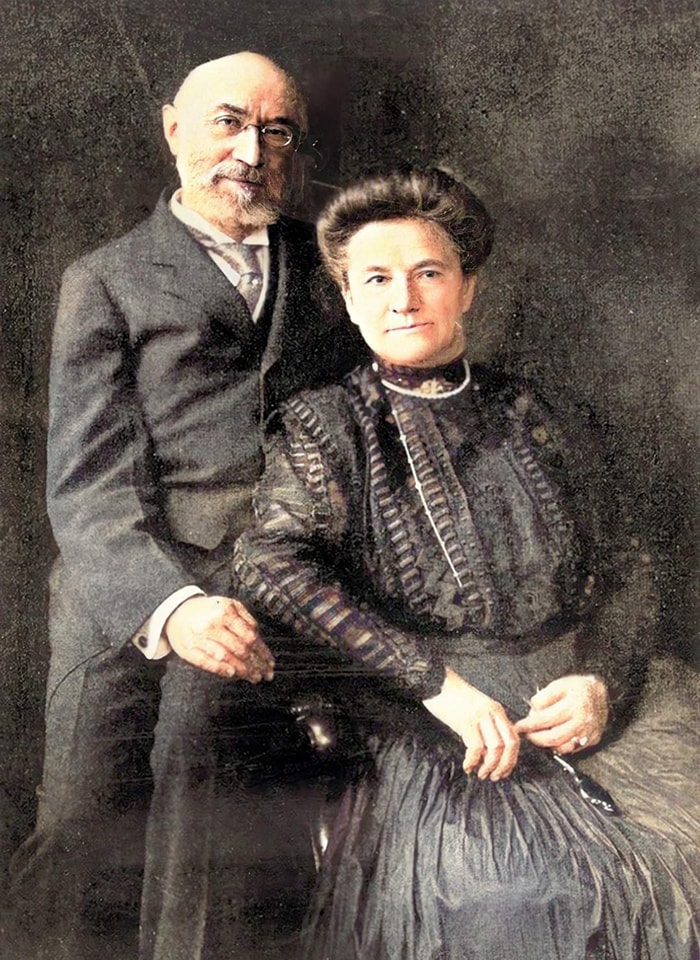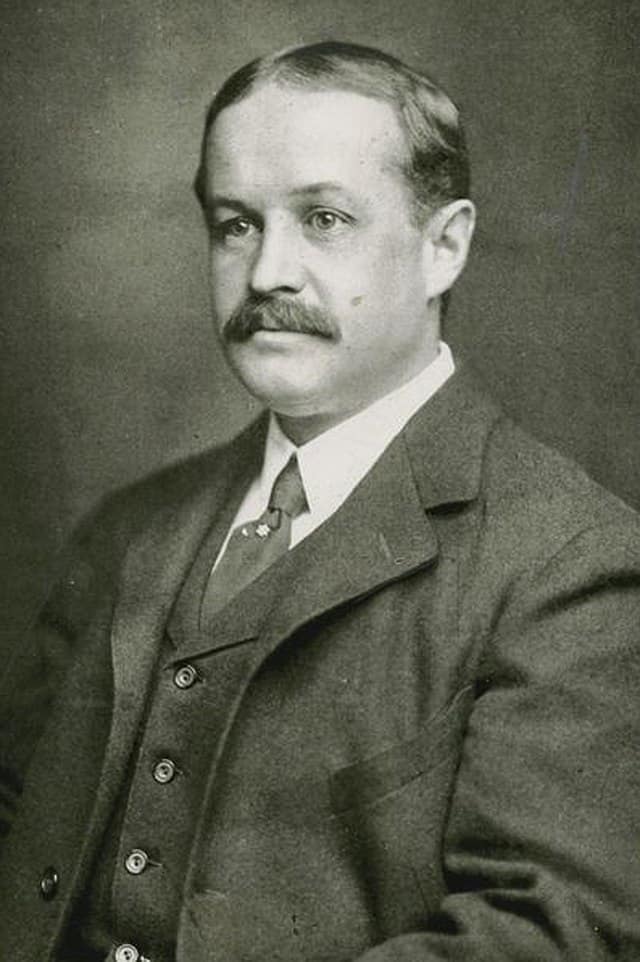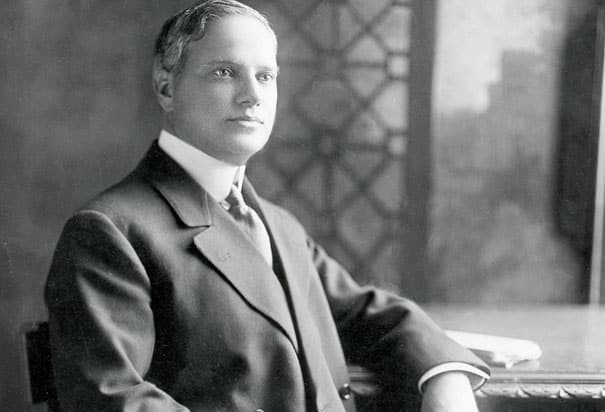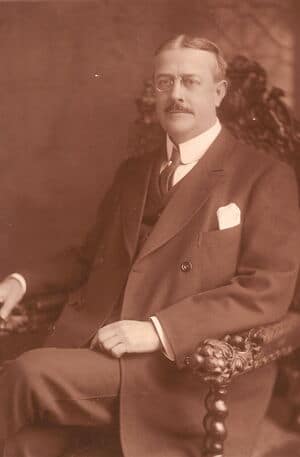Titanic’s Fallen Heroes, Who Sacrificed All On The Titanic
The Titanic is a really well-known maritime tragedy, and there were actually a bunch of famous people on board who either survived or sadly perished. The trip from Newfoundland to New York City turns out to be the last one of their lives. Some of the most famous passengers ended up sacrificing themselves for others and now rest at the bottom of the ocean.
1. Isidor Straus, co-owner of Macy’s, and his wife, Ida
The couple met in New York City after the Civil War. according to Premier Exhibitions. Isidor, initially penniless, later acquired Macy’s with his brother and became a successful businessman and a member of the US House of Representatives.

According to detailed accounts from Ida’s maid and Isidor’s work colleague who survived telling the story to newspapers at the time. During the Titanic tragedy, a Third Officer urged Ida, wearing a full-length mink coat, to board lifeboat 8 to escape the freezing temperatures. She did. When the officer signaled for Isidor to join her, he refused. Isidor said, “No I will not get on the lifeboat until I see that every woman and child has a chance to escape.”
According to Archibald Gracie in “The Truth About the Titanic,” at first the men tried to get Mrs. Straus into the boat but she would not go without her husband. Gracie writes, “’No’, he said, ‘I do not wish any distinction in my favor which is not granted to the others.’
Mrs. Straus climbed out of the boat and turned to her husband. She reminded him of their wonderful life together for 40 years and their six beautiful children. “If you won’t get on the lifeboat, I won’t either,” she told him. She then handed her mink coat to her maid, Ellen Bird, saying, “I won’t have any further need”. She added, “Please take this as you get into a lifeboat to keep you warm, until you are rescued.”
Other sources say Ida stated, “We have lived together for many years. Where you go, I go”, expressing their commitment to each other. Gracie describes how they calmly accepted their fate,”’They expressed themselves as fully prepared to die, and calmly sat down in steamer chairs on the glass-enclosed Deck A, prepared to meet their fate.”
As a wave struck the ship, Isidor wrapped his arms around his wife, and they were swept into the sea. Isidor’s body, identified as No. 96, was recovered by the MacKay-Bennett and taken to Halifax, while Ida was lost at sea. They were born on the same day (February 6th, 1849–April 15th, 1912) and tragically died on the same day as well.
2. Thomas Andrews, architect of the Titanic

Andrews wasn’t just any Titanic victim but was the guy who actually designed the ship. He hopped aboard the Titanic’s first trip to check it out and give advice on how to make it better.
When the Titanic hit an iceberg and started sinking, Andrews knew it was doomed to sink, according to the BBC. The last time anyone saw him was in the first-class smoking room around 2:05 am. He didn’t try to run for it. However, there is circumstantial evidence to suggest that he was seen in the smoking room earlier, around 1:40 am. There are also reports that he kept helping people even after that.
The BBC also reprinted a telegram from the White Star Line, which said, “When last seen, officers say was throwing overboard deck chairs, other objects, to people in water. His chief concerns the safety of everyone but himself.”
3. John Thayer, railroad executive

In 1912, Thayer was a well-known figure, having been both a cricket player and an executive at the Pennsylvania Railroad Co. Traveling on the Titanic with his wife and son after a trip to Berlin, Thayer took action when the ship hit an iceberg. He made sure his wife and their maid got onto a lifeboat.
According to Archibald Gracie in “The Truth About the Titanic”, Thayer looked “pale and determined” on deck before the ship went down. Unfortunately, Thayer’s body was never found. His son managed to survive by jumping into the water and swimming to an overturned lifeboat.
4. W. T. Stead, investigative journalist

Stead was a big-shot editor who might’ve foreseen his death on the Titanic. He ran The Pall Mall Gazette and stirred up controversy with a series on child prostitution, basically inventing investigative journalism.
Besides being a top editor, he was really into spiritual stuff. He even started a magazine all about the supernatural and a psychic service called Julia’s Bureau. He also wrote a fictional story in 1886 that sounds a lot like what happened with the Titanic.
“How the Mail Steamer Went Down in Mid Atlantic by a Survivor” tells a story of an ocean liner that sinks in the Atlantic. In the story, only 200 passengers and crew members of the original 700 people on board survive the disaster — because of a lifeboat shortage.
According to Biography.com, when the Titanic was going down, Stead wasn’t out on deck. Nope, he was holed up in his cabin, just reading away.
5. Benjamin Guggenheim, mining magnate

Guggenheim, a member of the influential Guggenheim family, made his fortune in the mining industry. He was traveling on the Titanic with his mistress, Léontine Aubart, who survived the tragic night, and his staffs.
According to “Life Titanic: The Tragedy That Shook the World,” Guggenheim was initially optimistic about the ship’s prospects, telling his maid: “We will soon see each other again. It’s just a repair. Tomorrow the Titanic will go on again.”
Before the Titanic sank, Guggenheim, whose body was never recovered, reportedly adorned himself with a rose and joked, “We’ve dressed up in our best and are prepared to go down like gentlemen.”
He also passed a message to a survivor to relay to his estranged wife, “Tell her I played the game out straight to the end.” He added, “No woman shall be left aboard this ship because Ben Guggenheim is a coward.”
6. George Dennick Wick, steel magnate

Industrialist George Dennick Wick was the first president of Youngstown Sheet and Tube Co., a steel company that’s no longer around.
In 1912, Wick went on a trip to Europe with his family to improve his health. He traveled with his wife, Mary Hitchcock Wick, his daughter Mary Natalie Wick, his cousin Caroline Bonnell, and Caroline’s aunt Elizabeth Bonnell. Unfortunately, he booked a trip on the Titanic to return to the US.
According to Encyclopedia Titanica, he was last seen on the ship’s deck, waving goodbye to his wife, daughter, cousin, and aunt as they got into a lifeboat. Wick’s body was never found.
7. Henry B. Harris, Broadway producer

Harris was a major player on Broadway when he died on the Titanic. He’d started producing plays and managing stars in 1897 and was returning to the US after a business trip to London.
He went down with the ship after ensuring his wife, Renee, who had previously broken her elbow after falling down the ship’s grand staircase, got on a lifeboat.
“Harry lifted me in his arms and threw me into the arms of a sailor and then threw a blanket that he had been carrying for me through the hours,” his wife said, according to the author Charles Pellegrino’s website.
Renee achieved prominence by taking up her husband’s line of work, becoming one of the first female theatrical producers in the US.
8. Jacques Futrelle, mystery writer

Before his tragic death on the Titanic, Futrelle made a name for himself as a mystery writer. Originally from Georgia, he kicked off his career as a journalist, writing for papers like the New York Herald and The Boston Post.
But according to Biography.com, he’s best remembered for his fictional stories. He created a fictional detective named Augustus S.F.X. Van Dusen and penned popular stories like “The Problem of Cell 13.”
On the night the Titanic sank, Futrelle and his wife were dining with Henry and Renee Harris. He made sure his wife got on a lifeboat before he was last seen chatting with Astor on deck.
9. Archibald Butt, presidential aide
Archibald Butt had quite the impressive career before dying during the Titanic disaster.
According to Arlington National Cemetery’s website, Butt started off as a reporter and later joined the US Army during the Spanish-American War. He served in Cuba and the Philippines, gaining valuable experience. He became President Theodore Roosevelt’s military aide in 1908. After Roosevelt, Butt continued in the same role under President William Taft.

However, Arlington National Cemetery’s website revealed that Butt’s health started to decline in 1912 due to the stress of staying neutral during the personal feud between Roosevelt and Taft. This might have led to his decision to travel to Europe.
There are lots of stories about Butt’s actions during the sinking, but many aren’t confirmed. Some say he was in charge of getting people off the ship or that he warned men who weren’t following the “women and children first” rule.
“If Archie could have selected a time to die, he would have chosen the one God gave him,” Taft said in a private memorial service, according to the Smithsonian. “His life was spent in self-sacrifice, serving others.”
He added: “Everybody who knew him called him Archie. I couldn’t prepare anything in advance to say here. I tried, but couldn’t. He was too near me.” Taft then said: “To me, he had become a son or a brother.”
The president cried while giving a speech at Butt’s funeral.

